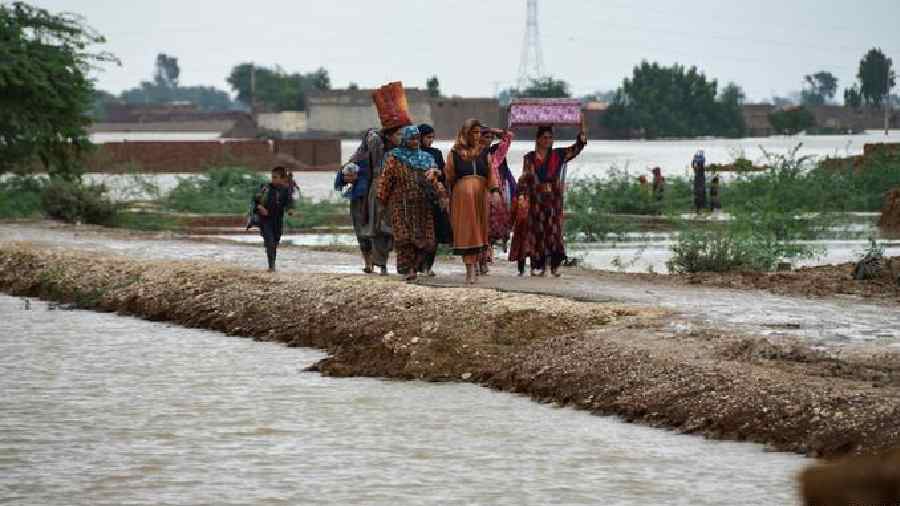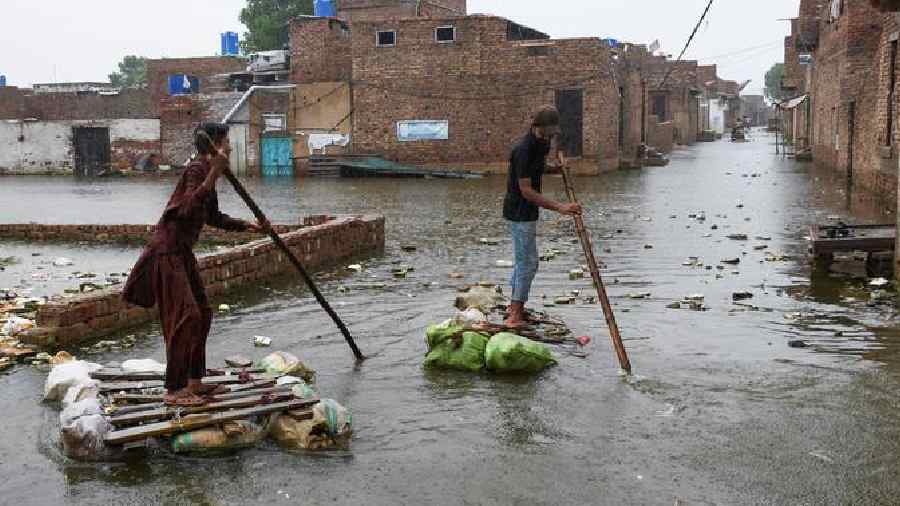Pakistani Prime Minister Shahbaz Sharif met with foreign diplomats to brief them about the situation in Pakistan. Torrential rains have caused heavy floods, killing 937 and affecting around 3 million people.
Pakistani Prime Minister Shahbaz Sharif on Friday called upon the international community for help, as deadly floods continue to batter the south Asian nation.
"Grateful to the international community for their sympathies, condolences & pledges of support. Together we will build back better," he tweeted.
Sharif met with foreign diplomats to inform them about the scale of devastation, he added.
Heavy rains cause flooding
Torrential rains have triggered floods in Pakistan, killing about 937. The rainfall last month was almost 200% above average making it the wettest July since 1961, Sardar Sarfaraz, a senior official at the metrological office told Reuters news agency.
A state of emergency has been declared, with floods caused by rains, melting glaciers, and cloudbursts affecting over 3 million people. The National Disaster Management Authority said around 170,000 homes have been damaged, washed away roads and destroyed nearly 150 bridges.
As Pakistan is currently cutting spending to ensure the release of bailout money from the International Monetary Fund (IMF) gathering aid for rescue and rehabilitation has proved to be a challenge.

Over 3 million people have been affected Deutsche Welle
"Pakistan’s torrential monsoons have led to unprecedented superfloods exceeding the devastation caused by the great flood of 2010. This one has rewritten climate history for more than a decade," Climate Change Minister Sherry Rehman said on Twitter.
Southeastern Sindh and southwestern Balochistan are the two provinces worst hit by the floods. The main supply route from the port city of Karachi has been cut for more than a week after a bridge linking it to Balochistan was swept away.
Although the water has receded in some areas, several people have been left marooned especially in Sindh. Rescue workers are engaged in efforts to evacuate those people, and many are living in tents and makeshift shelters.
A United Nations statement on Thursday said it has allocated $3 million for UN aid agencies and its partners in Pakistan.
"This will be used for health, nutrition, food security, and water and sanitation services in flood-affected areas, focusing on the most vulnerable," it said.
Monsoon began early in Pakistan this year after record-breaking heat. The country has seen heavy rains since June, triggering floods. Climate change is one of the major reasons behind these extreme weather events, say scientists.










